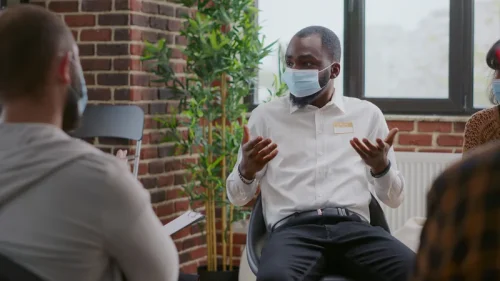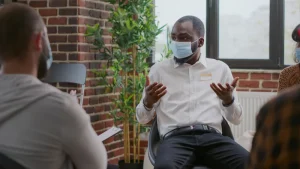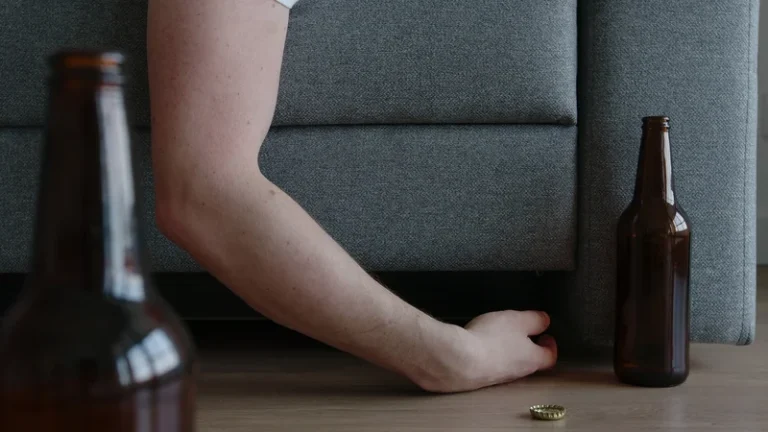8 Strategies to Handle Peer Pressure

Teens should be encouraged to cultivate a supportive network of friends who encourage healthy activities. Engaging in extracurricular activities related to their interests can create positive distractions and Alcoholics Anonymous lower the chances of negative influences. In today’s digital age, mental health apps provide valuable support for teenagers navigating peer pressure and emotional challenges.
Exploring Holistic Approaches to Addiction Treatment
Here’s an in-depth look at how parents can effectively cope with this pressure. Experts call it maladaptive coping strategies, which they have studied extensively as it can impact various individuals. You might not be ready yet to move past feelings of grief, loss, or fear, or to express them out loud—and that’s okay.
Ways to Be Supportive of Recovery

By offering your support, providing guidance, and encouraging strong decision-making skills, you can help your teen resist negative influences and stay true to themselves. They can encourage each other to skip classes, steal, cheat, use drugs or alcohol, share inappropriate material online, or become involve in other risky behaviors. The majority of teens with substance abuse problems began using drugs or alcohol as a result of peer pressure. In the complex journey of parenting, understanding and mitigating the effects of parental peer pressure is essential for fostering a healthy, supportive family environment. By focusing on what truly matters—our children’s happiness and our own well-being—we can resist the urge to compare and compete, embracing the unique journey of raising our children.
Role play peer pressure

As they get older, around 12 years of age, they begin to care more about how their peers see them. There can be a fear of rejection, not fitting in, or being left out. This can have a big effect on young adolescents who desperately want to be accepted by their peers. For adolescents, the need to “fit in” may be a powerful motivator that can lead them to inappropriate behavior. Bright Horizons child care centers have been supporting children and parents for more than 30 years. Designed by experts; facilitated by educators; created with working parents in mind – our centers are a place for children to discover skills and become confident learners for life.
- Encouragement from these friends can foster a sense of belonging without compromising personal integrity.
- It’s not just about resisting negative influences but also about fostering a strong sense of self-awareness and personal values.
- Parents can play a significant part by encouraging discussions about the consequences of decisions and supporting their teens in making informed choices.
- Most people think peer pressure is a bad thing (involving stealing, smoking, taking drugs, drinking alcohol).
- Children who feel this way are more likely to take up smoking, abuse drugs and alcohol, skip school, engage in petty crime, or become promiscuous as they enter their teen years.
“We can feel shame or guilt for pausing to care for our own needs,” says Karen Rogers, PhD, Clinical Psychologist at Children’s Hospital Los Angeles. You can just sit back and listen to the wisdom pouring from your child. More importantly, if you relate to them in an honest and authentic way, they may feel seen and heard by you and less alone in the struggle to find themselves. For example, you might see what kids in your class are wearing, like it, and wear something like that, too. Dr. Tali Shenfield holds a PhD in Psychology from the University of Toronto and is a licensed school and clinical psychologist. She has taught at the University of Toronto and has worked at institutions including the Hospital for Sick Children, Hincks-Dellcrest Centre, TDSB, and YCDSB.
Because adolescence is about testing limits and seeking new experiences, sooner or later teens will face peer pressure and difficult decisions that may be unpopular with friends. If your teens are increasingly indirect peer pressure finding themselves in uncomfortable situations, suggest they reassess their friendships. We are at our best when we surround ourselves with people with similar values and interests. Role playing can feel like too much pressure to some young people. When a teachable moment presents itself, ask how your teen would have responded to a similar situation. Or as you’re riding together in a car you may be exposed to real life situations on the streets around you.

To utilize positive peer pressure effectively, it’s crucial for parents and guardians to foster environments where teens can surround themselves with peers who contribute to healthy choices. Encouragement from friends to pursue academic excellence or join community service initiatives can lead to beneficial outcomes. One common social media misrepresentation is when people post the “best” of their lives, creating a false sense of reality. This can lead teens to compare the true reality of their lives to the “picture-perfect” portrayal of others’ lives and feel pressure to keep up. Additionally, the absence of in-person feedback can enable an environment in which people share harmful content or abusive comments that they would not otherwise say in person.

Over-scheduling children’s activities
Celebrate their achievements and praise them when they make good choices. Children who feel good about themselves are more likely to resist negative peer pressure. Children who have friends whose families share your values are more likely to resist negative peer pressure. Don’t be afraid to talk with other parents, even when your child is in high school and seems independent. By integrating these tools and strategies, parents can effectively support their teens in navigating the complex realm of peer pressure. Together, we can foster a generation of confident and self-assured individuals who thrive in their social environments.
- When they are faced with a difficult situation, help your children brainstorm solutions and encourage them to take action.
- Research has found that children with low self-concept are more susceptible to peer influence and a desire to conform.
- Our feelings are signals, and we would be wise to listen to them, but if we don’t sort them out prior to interacting with our children, they will feel the pull to take care of our feelings.
- Discover essential things to consider before reconciling with family for lasting healing and understanding.
- Tell your child they can blame you if they need to get out of a bad situation.
Friends and peers can have positive and negative influence on children. Parents can influence the odds that teens are surrounded by positive peer groups by encouraging participation in a variety of healthy activities. ” to friends who engage in behavior we don’t like, that isn’t always realistic.
